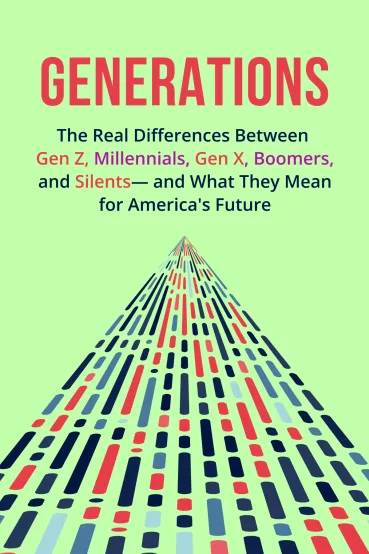
Generations
Brief Summary
Each generation has its own unique culture shaped by history and technology. A renowned psychologist, Jean M. Twenge, explains the distinctive traits of Boomers, Gen X, Millennials, and Gen Z. From work ethic to values, she discusses how the differences between generations shape our world.
Key points
Key idea 1 of 8
Have you ever wondered why your grandma’s perspective on the world differs from yours? And why do your parents seem so out of touch with modern trends? These generational differences exist because of constant changes in society. Each generation grows up in a different environment with unique technology, significant events, and shifting cultural values.
Technology has revolutionized our daily lives. Each generation grows up with different technologies, which shape their thinking and behavior. Older generations, like Boomers, did not grow up with the internet, while Millennials and Gen Z were connected to the web from a young age. This causes generational gaps in how people approach work, social interactions, and even leisure. For example, in the 1950s, people communicated through letters or phone calls. Now, we can send messages instantly via smartphones and social media. These advancements have created a new lifestyle where information is shared quickly.
Another critical factor is individualism. Over time, society has shifted from collective thinking to a focus on personal freedom. In the past, social norms and roles were much more rigid. People would follow the same career paths as their parents. On top of that, it was a society where gender roles were clearly defined. Today, individualism encourages self-expression, and people make choices based on personal desires rather than tradition. For example, many young people focus on their careers or personal growth first, delaying marriage or having children.
Ultimately, life trajectories have slowed. People now take longer to reach traditional milestones, such as completing their education, starting a career, or purchasing a home. In the past, adulthood came early, with responsibilities like marriage and children being typical by the mid-twenties. Today, many people are still in school or exploring career options at that age. This shift allows for greater personal growth but also creates a generational difference in values and expectations.
Generational differences are like “turtles all the way down,” with technology as the foundation. Technology, individualism, and slower life trajectories form the layers that cause generations to experience the world differently. While major events like wars or pandemics undoubtedly influence each generation, technology remains the constant driver of these shifts. This is why each generation develops its own unique culture, shaped by the tools and values of its era.
FAQ
You may also like these summaries











